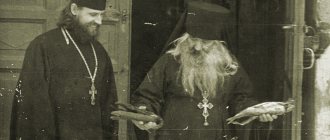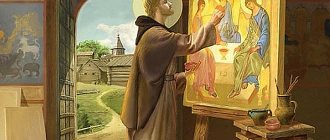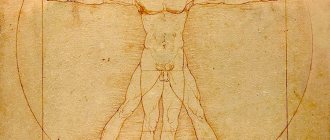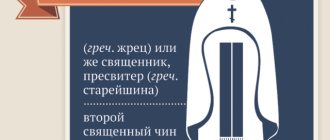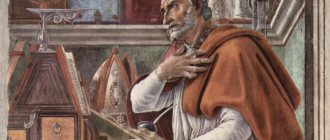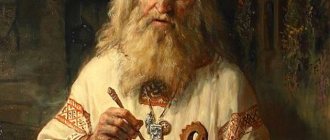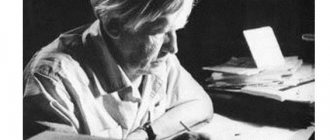There are few poets whose biography would be as exciting and interesting as that of Francois Villon. François Rabelais and Robert Louis Stevenson mentioned it in their works, and Ludwig Berger and Frank Lloyd made films. They repeatedly wanted to execute the poet, and how he ended his earthly journey is still hidden in the darkness of the unknown. This article will tell you about some details of the biography of Francois Villon.
early years
The exact date of birth of the future poet is unknown. It is assumed that he was born between April 1, 1431 and April 19, 1432.
At the age of eight, the boy was left without a father in the care of his mother. Although the child received the surname de Montcorbier at birth, he was subsequently adopted by a relative who served as chaplain of the Church of St. Benedict in Paris. Guillaume Villon fell in love with the orphan and invited his mother, who was barely making ends meet, to give him the child to raise. The man tried to ensure that Francois did not need anything and, according to the poet, was “more than a father” to him.
In the University
In the 15th century, children of the poor could not even dream of a good education. However, thanks to Guillaume Villon, at the age of 12 Francois entered the Faculty of Arts at the University of Paris. It was a kind of preparatory course in which teenagers were prepared for further studies and instilled in good manners.
In 1449, the future poet graduated from the university and received a bachelor's degree. The capable young man did not stop there, and after another 3 years he already had a licentiate and master's degree. The diploma he received gave him the right to teach at a university or serve as a priest, but neither one nor the other attracted the young man.
First poems
Perhaps, if Villon had been born at a different time, he would have become a court poet or a famous scientist. However, in the mid-15th century, France was in decline due to the recently ended 7-year war. Fortunately for the young man, he began to be invited to evenings hosted by the provost (chief executive of the judiciary) of Paris, Robert d'Estouteville. Poets gathered there and read their poems for the guests of the owner of the house. Under their influence, the young man wrote his first famous work, “The Ballad of Prevost the Newlywed.” This wedding song took the form of an acrostic from the name of d'Estouteville's bride.
Thanks to this and other works, by the mid-1450s, François Villon, whose biography is full of blank spots, achieved fame as a poet.
Poetry
Even during his years of study at the Sorbonne, Francois was admitted to the house of the highest-ranking Parisian official, Robert d'Estouteville. Poets often gathered there, and Villon took part in poetic battles to the delight of the hosts. In their honor, Villon composed a wedding song called “The Ballade of Prevost the Newlywed,” in which he inscribed the name of Estoutteville’s wife in an acrostic poem.
Illustration for Francois Villon’s poem “From Paradise I Come”
Villon's poetry is inextricably linked with the difficult fate of this man. All his poems are a reflection of life situations, a reaction to what is happening around. Francois's work is considered deeply realistic and philosophical at the same time. Against the backdrop of the poems of the Renaissance poets with their romantic images, blooming gardens, singing birds and arrows of love, Villon’s ballads, full of pain, blood, tears, the true feelings of ordinary people, naked realism, are read in especially contrast.
At the same time, the poet was the first to use ironic intonations and even sarcasm when speaking about his own life and its ups and downs, and in some works he used grotesque and exaggerated images. Through the lines of poetry one can see a living person, with his sins and shortcomings, suffering and dreams, who does not idealize himself or others.
The talent of François Villon, despite the centuries-long gap, was deeply revered by Ilya Ehrenburg and Osip Mandelstam, Nikolai Rubtsov, and numerous monographs and studies are devoted to the life and work of the poet.
First brush with the law
As a student, Villon participated in all the revelries and fights organized by his fellow students. In addition, he was distinguished by his loving nature and did not miss a single skirt.
In June 1455, his name first appeared on the pages of official documents, which even in those days the Parisian law enforcement and judicial authorities compiled carefully, scrupulously checking all the facts. It is thanks to these records that many details of the biography of Francois Villon have reached us.
In particular, it is reliably known that on June 5, 1455, a priest named Philippe Sermoise attacked the young poet with a knife. The cause of the fight that ensued was a woman. In the heat of battle, Villon mortally wounded the “holy father.” To escape prosecution, he left Paris.
Consequences
The poet François Villon, wandering far from the capital, did not know that before his death, Philippe Sermoise, who wanted to be cleansed of his sins, admitted that the young man was defending himself and forgave his unwitting killer. Thus, the fugitive was in no danger. He wrote two petitions to the Royal Court, which declared him not guilty.
However, before this good news reached Francois, he spent seven months in dubious company. It is believed that during this time he managed to take part in at least two robberies.
How Villon plays “great rhetoricians”
Villon writes at the same time as the poets who are called “great rhetoricians.” These are court poets who resort to grandiloquent formulations, speak about great events in complex language and use extremely intricate stylistic figures and poetic forms. The era of the “great rhetoricians” (grands rhétoriqueurs) is the period from 1460 to 1520, when court poets from different regions of France, such as Jean Mechino, Jean Molineux, Jean Lemaire de Belge, Guillaume Cretin, Jean Marot, Jean Boucher and others. . It amazes me that Villon writes very simply: an eight-syllable, it couldn’t be simpler. In addition, both the rondo and especially the ballad are very well developed forms in this era. At the same time, he masters the language of great rhetoricians and uses it for entertainment. For example, in “Ballads in Colored Slang” there is the line “Joncheurs jonchans en joncherie” - literally “cheating, cheating, cheats...” (“Cheating, skok lepya il tyrya” translated by Yuri Korneev). Only a “great rhetorician” could use such a stylistic figure.
Another important aspect of Villon's poetics is rhythm. He uses a technique called enjambment - the discrepancy between a rhythmic pause at the end of a line and a logical pause, for example at the end of a sentence. As a result, against the background of a simple eight-syllable, a broken syntax appears - which makes Villon’s poetry alive. Villon does not stand aloof from the poetic movement of his time; he masters the poetic form and retains the power of verse in poetry.
Return to Paris
Francois Villon arrived in the capital at the beginning of 1456. But the criminal environment no longer let the poet go. Eleven months later, on Christmas night, he and three accomplices robbed the College of Navarre, stealing fifty gold crowns. He immediately divided this amount with his accomplices and fled from Paris, hoping that everything would remain a secret and the crime would remain unsolved. The most interesting thing is that on the night of the robbery, Francois Villon, whose poems at that time were not yet as popular as in subsequent centuries, wrote his first major work - a message to friends, entitled Les legs. Subsequently it became known as the “Small Testament” (Le petit testament).
Although they learned about the theft only several months later, law enforcement officers were able to identify the names of the criminals. Thus, Francois Villon, whose biography was subsequently written largely thanks to records found in police archives, could no longer return to Paris.
The poet spent the next five years wandering. He walked almost the entire country from the English Channel to the Mediterranean coast.
Why the bad guy quotes Virgil
We know François Villon from two types of sources: firstly, from archival documents - judicial and university, and secondly, from his poetry.
In the court archives, he appears as a “bad guy” - and it must be said that the image of a robber, even a murderer, that stuck with Villon, contributed significantly to his success. University archives tend to ignore Villon. We only know that his tutor was Chaplain Guillaume de Villon, a professor of church law - that is, a lawyer. François Villon himself received a university education and all the academic degrees that existed in his era, from bachelor to master.
Villon's poetry reflects both of these sides of his life. We can say that it combines the experience of everyday life with university scholarship, primarily of a legal nature. The image of a bandit is in the jargon and in descriptions of the street life of Paris: smart-mouthed women, fishmongers, prostitutes, taverns. The image of a scientist is in quotations: he quotes the grammar of Donatus, Macrobius, Virgil “Ars grammatica” of the Roman rhetorician Aelius Donatus, “Institutiones Grammaticae” of the Roman grammarian Priscian, the works of Macrobius, Virgil, Ovid, etc. constituted the compulsory curriculum of a medieval university.. In his poetry, he uses legal language extensively and confidently. He knows the language of the Bazoche clerks and even their theatrical practices. The Bazoche Clerks are a corporation of prosecutorial clerks that arose in Paris at the beginning of the 14th century. They organized annual theatrical performances, which showed satirical and allegorical farces and burlesques, including parodies of court hearings.
Another source of Villon's legal knowledge is his difficult relationship with the law. Moreover, it is precisely his experience of imprisonment that is known to us primarily not from court archives, but from poetic texts. Let's take the story of the “harsh prison of Mehun” (“la dure prison de Mehun”). Bishop Thibault d'Ossigny took Villon into custody in the city of Meun-sur-Loire. The poet devotes lines to this episode full of rage towards the bishop:
For thirty years I have drunk in full the whole cup of grief and shame, Although I do not accept myself as either a saint or a thief. In Thibault d'Ossigny, Thibault d'Ossigny - in 1452-1473, Bishop of Orleans and Maine, who condemned me to that fate, having put me in prison because of nonsense, I do not honor the episcopal rank. I am not his vassal, I am not bound to him by the inviolability of a vow, and I am obliged to him for one thing - For bread and water, than all summer In a dungeon not warmed by the sun, the guards mortified my flesh. May the Lord reward him for this with the same generosity! And if there is a suspicion that I am maligning His behavior through slander, I will give a very simple answer: “Was he really merciful to me? Well! Then I would like for him to fully experience my destiny both body and soul.” “The Great Testament”, translation by Yuri Korneev..
But not a single archival document has survived that would testify to this episode of his life.
Where possible, it is interesting to consider the poetic text in parallel with archival documents. For example, it is known that during the last imprisonment in Chatelet, Chatelet was a castle (more precisely, two - Grand and Petit Chatelet), which was used as a prison in the 13th–14th centuries. Villon asked to mitigate the punishment imposed on him - truly undeserved: he did not stab the victim with a dagger, but was only part of the group involved in the crime. But since he already had a criminal record, he was sentenced to death by hanging. Villon won the appeal. In "The Ballad of the Appeal" we see him rejoicing in his victory:
Garnier, what's bothering you? Isn't it my appeal? But even a captive beast breaks the Net with which it was caught. They pressed me so hard against the wall that the Saint would hardly have been able to resist the curse. Should I really have been silent? <...> If I had remained silent, prince, as those who would have come in handy were waiting for, My corpse would have been buried long ago... Should I really have been silent? “The Ballad of the Appeal, or a Question to the Gatekeeper of the Chatelet Prison,” translated by Yuri Korneev.
He seems to be saying: “You warned me not to try to appeal. Look, I appealed and won!”
Francois Villon. Illustration for the 1489 edition of Villon's works © Bibliothèque nationale de France
Competition in Blois
During his travels, Francois managed to visit Blois, at the court of the famous philanthropist and poetry lover - Charles of Orleans. The Duke was passionate about creating an album of ballads. He attracted many poets of his time to write it. According to the terms of the competition, each of them had to write one comic poem on the topic “I am dying of thirst over the stream.” Villon was among the participants. The “Ballad of the Poetry Competition in Blois” he wrote was subsequently recognized as one of the most profound philosophical works of the poet. Apparently, the idea of making money by writing attracted Villon, since information has been preserved that he also managed to amuse the Duke of Bourbon with his art, who granted the poet 6 crowns.
Personal life
Francois Villon became famous in Paris and France not only as a poet, but also as an inveterate reveler, robber, scoundrel and fighter. Even before graduating from the Sorbonne, he participated in the prank of schoolchildren, which he later described in a satirical novel in verse that has not survived to this day. The poet mentions him in the “Great Testament”, written in 1461.
Mischievous students managed to steal a stone cabinet that stood near the house of a respectable Parisian woman. The lady filed a lawsuit, accusing the students of theft, and installed a new stone. The angry young people also stole the second pedestal, and soon both stones were displayed on the territory of the Sorbonne.
Young Francois Villon
Those responsible for the prank were arrested and wanted to be brought to justice, but university lawyers came to the rescue, and in the end the students won. The mischievous people were acquitted, but the judges had a hard time.
In 1455, Villon again found himself in a high-profile story, this time related to murder. A quarrel occurred between the poet and the young priest, the cause of which was a woman. The drunken priest got into a fight, and Francois, in defense, stabbed him with a knife. The wound turned out to be fatal, and after some time the bully died, having managed to forgive and justify Villon.
Francois submitted two petitions for pardon, but, wanting to avoid arrest, he left Paris. This decision became fatal for the poet. Having no means of subsistence, he contacted robbers. In 1456, Villon returned to Paris, having received a pardon.
Francois Villon in prison
In the same year, the poet-robber and his accomplices robbed the College of Navarre. The gang stole 500 gold coins and divided them equally. Villon was going to go to Angers to visit Duke René of Anjou: Francois had long cherished the dream of becoming a court poet under some influential nobleman. He was unlucky in Angers, and a year later the circumstances of the theft were revealed, and Villon was not allowed to return to Paris under pain of execution.
Before escaping from the capital, the unlucky poet wrote a “Small Testament”, where he jokingly bequeathed insignificant objects and images to his friends: his empty wallet, a sign on a tavern. According to some reports, the reason for the escape was unrequited love for Catherine de Vossel, who responded to the poet with an insulting refusal.
Francois spent the following years wandering around France. He joined a gang of Koquillard robbers. Seven ballads written by the poet in thieves' jargon date back to this period, which today no one can decipher.
At the court of Charles of Orleans, who himself was a famous poet, Villon wrote the famous “Ballad of the Poetry Competition in Blois.” The Duke started a poetry competition, and chose “I am dying of thirst over a stream” as the theme for the poems. The poems were supposed to be humorous and light, but from the pen of Francois came a real masterpiece, a deep, ironic and philosophical work.
After this, Villon spent two more years in prison awaiting sentencing, in Orleans and the town of Maine-sur-Loire, but was granted amnesty on the occasion of the arrival of the royals. In 1461, the poet returned to Paris, where he lived, hiding with friends. At the same time he wrote the famous “Big Testament”. The cycle of ballads included:
- "Will";
- "Epitaph";
- "The Ballad of the Ladies of Old Time";
- “Ballad will accept” (I know...);
- "Prayer";
“Prayer” became the only deeply tragic poem, because the poet, without the slightest irony, put words of prayer into the mouth of his mother, whom he considered the best woman in the world. Subsequently, Bulat Okudzhava wrote a song entitled “The Prayer of Francois Villon,” but this text has nothing to do with the medieval poet.
In Paris
After being released from prison, Villon went to the capital. In the vicinity of Paris, in the winter of 1461-1462, Francois wrote his main work, entitled “The Great Testament.” Then his traces are lost again, but already in the fall of 1462, one of the police documents records that Villon was caught stealing. After a short trial, the poet was sent to Chatelet prison, from where he was released a month later, promising to pay back the money he received after the robbery of Navarre College.
History of the prayer song
Bi-2 "Prayer"
The wonderful Belarusian-Russian band Bi-2 has been delighting its fans with albums in the genres of alternative and indie rock for many years. At the same time, one clear trend can be traced in the musicians’ work: in fact, every album, in addition to “explosive” and dynamic compositions, contains at least one or two slow, measured and calm songs. A classic example of the latter is “Prayer” from the album called “Spirit”.
the history of the creation of the song “ Prayer ”, as well as amazing facts about the composition on our page.
Story
“Prayer” is the final track of the eighth studio album “Spirit” by the Bi-2 group, released in 2011. The authors of the text are considered to be flutist Yan Nikolenko, as well as one of the permanent leaders of the group, Egor Bortnik, better known under the pseudonym “Leva Bi-2”. The musical design of Lev and Shura Bi-2 was selected together, and the arrangement was done by Evgeny Pankov, who is also known for his work on the keyboards and in the backing vocals of the group.
The album “Spirit” was released by the group already, and it would not have been destined to see the light of day if not for the ardent support of their idols from the group’s fans. The fact is that Bi-2 at one time literally announced a fundraiser for the production of the album, launching a simple promotional system: for just one thousand rubles, a fan of the musicians’ work received two CDs with the finished album after recording it, plus a ticket to the band’s concert . Fans also had the opportunity to “reset” only 250 rubles, but in this case they received the album only through the mobile application.
"Spirit" was released digitally on December 1, 2011, after the required amount was successfully raised. Just a couple of months later, the artists organized a big tour in support of the album. As part of this tour, Bi-2 performed not only in Russia and Ukraine, but also in Latvia and Estonia.
Shura Bi-2 spoke of “Prayer” as a composition denoting a happy ending in the context of the overall drama of the record, which the musician views as a full-fledged work of art - a kind of musical novel.
In 2013, the film “Metro” by Russian director Anton Megerdichev was released, and the band’s musicians were asked to make “Prayer” its soundtrack. The composition suited the film both in mood and message, so Bi-2 did not refuse and accepted the offer, at the same time supporting the film with a new video clip.
The film itself combines the features of a thriller, drama and disaster film. Its plot tells the story of a Moscow metro train involved in a terrible accident, whose passengers were trapped due to the collapse of the arches of one of the tunnels and water from the Moscow River entering it. The main roles of “Metro” included Honored Artist of Russia Anatoly Bely, Russian theater and film actress Svetlana Khodchenkova and Sergei Puskepalis, theater and film director, Russian film actor.
Interesting Facts
- “Prayer” became the longest composition on the album: its complete listening takes 5 minutes 37 seconds.
- The album “Spirit” was released not only in CD format, but also on vinyl records. Thus, the group members wanted to satisfy the needs of lovers of the “vintage” style in music.
- During the concert performance of the composition, the band's fans independently organize an unforgettable light show, lighting flashlights on their smartphones or lighters and waving them to the beat of the music.
- “The Prayer” is not just a film soundtrack: its first notes begin to sound even before the credits appear on the screen. This director's idea is aimed at making the composition part of the denouement of the film story, giving it even greater commonality with the plot.
- The official video for “Prayers” contains not only the musicians from Bi-2 themselves, but also inserts from the film.
- The filming of the video took place in January 2013 at a club in the capital called “Stadium Live”. The video was directed by Alexander Andryushchenko. For Andryushchenko, working with Bi-2 was not his debut: the director had previously shot seven full-length videos for the team.
- The film “Metro” was nominated to receive the national cinematographic award “Nika” in the category “best work of a sound engineer.” The nominee was Rostislav Alimov.
- The group has repeatedly performed the composition on stage together with a symphony orchestra, giving it an updated, special sound.
Death Sentence
But Francois Villon, whose work is studied today in most literary universities in the world, was incorrigible. A month later he took part in a fight and wounded a papal notary. The recidivist poet who was imprisoned was subjected to torture. The court sentenced him to death, which was to be carried out by hanging.
Without hoping for a pardon, he nevertheless made such a request to Parliament. During the days of awaiting execution, the poet continued to create. This is how the famous work of Francois Villon “The Ballad of the Hanged” appeared.
However, a miracle happened. On January 5, 1463, the death sentence against the poet was overturned by Parliament. It was replaced by Villon's ten-year exile from Paris and nearby populated areas.
This resolution of Parliament is the last reliable documentary evidence about the poet that has survived to this day. After 3 days, Francois left the French capital and no information has been preserved about where he wandered and how he ended his days.
LiveInternetLiveInternet
—Photo album
-Music
—Links
—Categories
- blanks (282)
- baked goods (233)
- meat (126)
- pies (56)
- cakes (43)
- new year (22)
- knitting (19)
- casseroles (18)
- Old photo (18)
- hotels (16)
- fish (16)
- pancakes (14)
- potatoes (14)
- wine (11)
- mushrooms (10)
- medicine (9)
- cheese and from it (9)
- cottage cheese (8)
- cabbage (7)
- knitted rugs (7)
- dairy (6)
- embroidery (6)
- salads (5)
- dreams (3)
- Easter cake (3)
- chicken (3)
- salads (3)
- tablecloths (2)
- dumplings (1)
- lard (1)
- peppers (1)
- cleaning (1)
- zucchini (1)
- curtains (0)
- first courses (0)
- Antiques (57)
- Army (16)
- Astronomy (21)
- Audio books (184)
- Loyalty (2)
- Video clips (325)
- Cities and countries (459)
- Horoscopes (27)
- Dacha (757)
- Babes (21)
- Diet (35)
- Design (60)
- Friend (5)
- Wishes (20)
- Woman (154)
- Painting (268)
- Life (171)
- Locks (10)
- Animals (86)
- Famous people (175)
- Interior (275)
- History (409)
- Books (24)
- Comp (117)
- Cosmetics (63)
- Coffee (37)
- Cookbook (1129)
- Cars (31)
- Medical humor (5)
- Fashion (157)
- My tests (72)
- My city (31)
- My garden (19)
- Prayers (18)
- Men (21)
- Music (399)
- Multicooker (40)
- Cartoons (74)
- Wow (189)
- Traditional medicine (19)
- Our world (175)
- Tenderness (13)
- Oddities (44)
- Diary design (57)
- Memory (7)
- Congratulations (17)
- Utilities (242)
- Politics (564)
- Parable (29)
- About the glamor girl (22)
- About love (123)
- About me (21)
- Prose (101)
- Psychology (61)
- Gardens (6)
- Fairy tales (128)
- Funny (17)
- Cathedrals (21)
- Sports (10)
- Poems (636)
- Destiny (6)
- Happiness (34)
- Theaters (42)
- To you (95)
- Touching (33)
- Smart thoughts (172)
- Movies (192)
- Photos (73)
- Phrases of the day (5)
- Fantasy (2)
- Flowers (137)
- Elite (2)
- Encyclopedias and reference books (9)
- Jewelry details (46)
- Humor (381)
Bulat Okudzhava: “Prayer”
For many years it was believed that this work by the bard was a free translation of the original by Francois Villon. However, Okudzhava himself once admitted that this ballad was his own composition. He called it "François Villon's Prayer" so as not to have problems with Soviet censorship.
Okudzhava wrote the lyrics first, and the music was written later. The song premiered in 1967. Okudzhava’s “Prayer” immediately fell in love with the audience, since in it everyone found and still finds something touching the soul.
Many people prefer the original performance of this ballad, but there are also many who like to listen to the recording made by Elena Kamburova.
Now you know about some details of the biography of Francois Villon, about Okudzhava’s “Prayer” and about who made the poems of this most famous French poet of the Late Middle Ages known.
Mandelstam about Villon, hermaphroditism and movement
The Russian poet Osip Mandelstam wrote a magnificent analysis of Villon’s poetry, he understood everything about him Mandelstam O. E. Francois Villon. Collected works in four volumes. T. 1. pp. 169–176. M., 1993.. On the one hand, he talks about Villon’s “lyrical androgyny.” This is the subtlest formulation. Mandelstam saw that in his poetry Villon projects himself onto both male and female images: he could be the Beautiful Helmet, or maybe a clerk at her bedside, ready to write down her will.
On the other hand, Mandelstam compares Villon with Verlaine, which is less original, because since the 19th century everyone has been doing this. Reinterpreting Verlaine, Mandelstam writes: “Movement first of all” (“Du mouvement avant toute chose”) - in Verlaine this phrase sounds like this: “Music first of all” (“De la musique avant toute chose”). Mandelstam saw precisely liveliness and movement in Villon’s poetry. That is why Villon is not only a poet of death. For example, in “The Ballad of the Hanged” the speech is made on behalf of the hanged themselves. One could say that this is gloomy, but only the corpses are swaying: “And we are swayed back and forth by the winds” Translation by Yuri Korneev. (“Puis ça, puis la, comme le vent varie”). That is, for Villon, even in death there is life, there is movement, there is wind. And he implements this idea truly consistently. Mandelstam noticed this: movement, first of all, is Villon’s poetry.
Translation by Isabella Levina
Jacqueline Sercigliini-Thule is a specialist in medieval literature, professor at the University of Paris-Sorbonne, author of the books “The Color of Melancholy. Book Culture in the XIV Century: 1300–1415" (1997) and "The Testament Genre at the End of the Middle Ages: Personality, Dispersion, Trace" (1999), commentator on the complete works of François Villon (2014) and one of the most authoritative scholars of his work.

